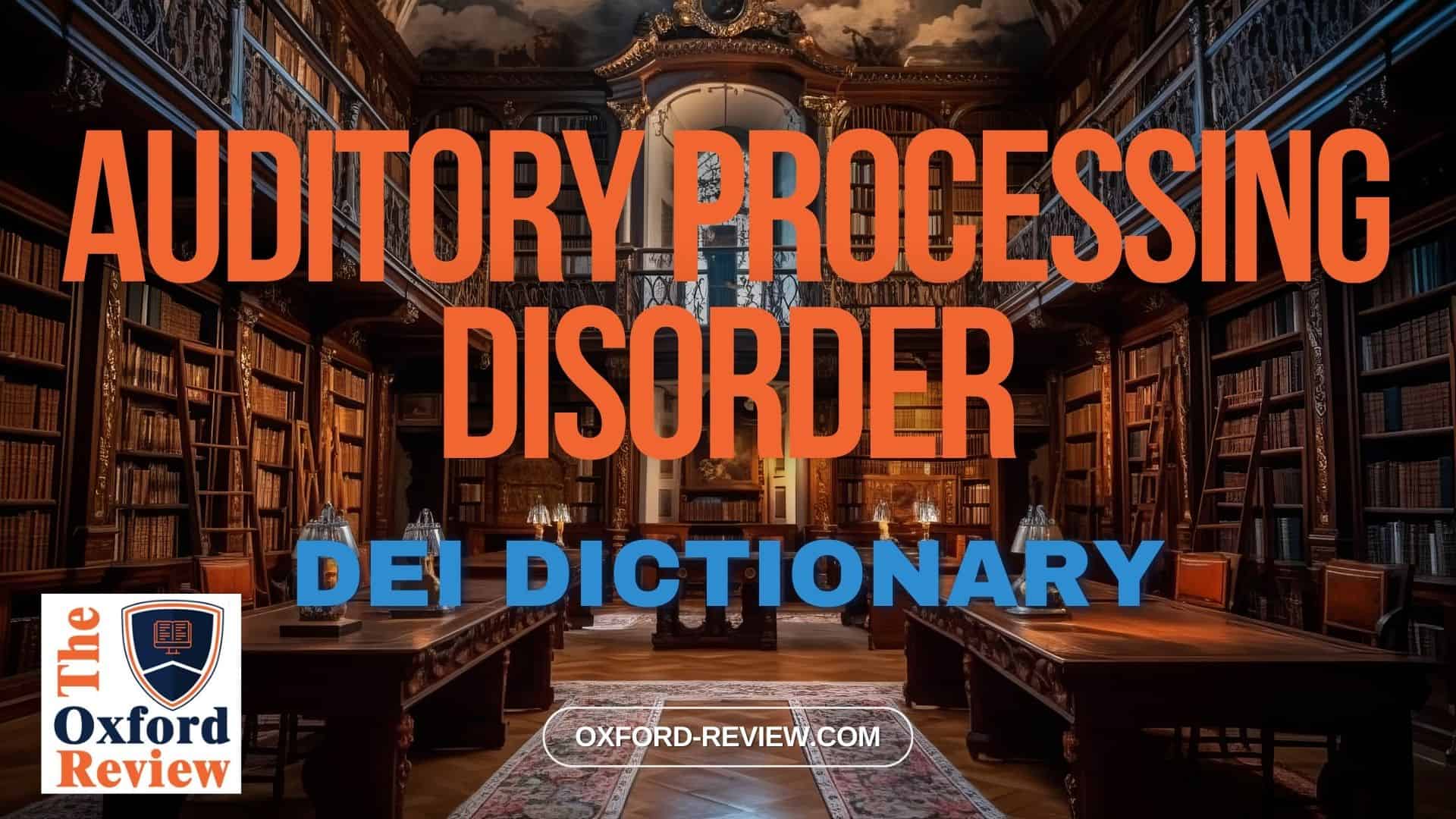Auditory Processing Disorder – Definition and Explanation

Understanding Auditory Processing Disorder: Causes, Symptoms, and Management
Auditory Processing Disorder (APD) is a condition that affects how the brain processes auditory information. Individuals with APD may have difficulty understanding speech, especially in noisy environments, despite having normal hearing. Understanding this disorder is crucial for effective support and intervention.
Definition:
Auditory Processing Disorder, also known as Central Auditory Processing Disorder (CAPD), refers to difficulties in processing auditory information in the brain. It is not a problem with hearing itself but rather with how the brain interprets and makes sense of the sounds it hears.
Causes:
The exact causes of APD are not always clear, but it can be linked to a variety of factors, including:
- Genetics: There may be a genetic component to APD, as it sometimes runs in families.
- Prenatal Factors: Exposure to toxins, infections, or other prenatal factors during pregnancy can contribute to APD.
- Early Childhood Factors: Certain early childhood conditions or experiences, such as chronic ear infections or a history of language delays, may increase the risk of APD.
Symptoms:
Symptoms of APD can vary from person to person but may include:
- Difficulty understanding speech, especially in noisy environments.
- Trouble following directions, particularly multi-step instructions.
- Difficulty distinguishing between similar sounds or words.
- Struggling with reading, spelling, and other language-related tasks.
- Problems with auditory memory and recall.
Diagnosis and Management:
Diagnosing APD typically involves a comprehensive evaluation by an audiologist or other qualified healthcare professional. Treatment may include:
- Auditory Training: This involves activities and exercises designed to improve auditory processing skills.
- Environmental Modifications: Making adjustments to the individual’s environment, such as reducing background noise, can help improve communication.
- Assistive Devices: Using technologies like FM systems or hearing aids can enhance auditory input.
- Educational Support: Working with teachers and educational professionals to implement strategies that support learning and communication in the classroom.
Example:
Consider Sarah, a 10-year-old girl with APD. Despite having normal hearing, she struggles to follow instructions in the classroom, often mishearing or misunderstanding what her teacher says. Sarah also finds it challenging to participate in group discussions, especially when there’s background noise. After undergoing a comprehensive evaluation, Sarah receives support from her school’s special education team, including auditory training exercises and preferential seating in the classroom to minimise distractions.
Conclusion:
In conclusion, Auditory Processing Disorder is a complex condition that can significantly impact an individual’s ability to communicate and learn. By understanding its causes, symptoms, and management strategies, we can better support those affected by APD and help them thrive in both academic and social settings. If you suspect that you or someone you know may have APD, seeking a thorough evaluation by a qualified professional is the first step towards getting the support needed for success.
References:
Geffner, D., & Ross-Swain, D. (Eds.). (2018). Auditory processing disorders: assessment, management, and treatment. https://books.google.co.uk/books?hl=en&lr=&id=Bv1qDwAAQBAJ&oi=fnd&pg=PR9&dq=Auditory+Processing+Disorder&ots=FMAv6SeR-P&sig=1HtzU1D90QPT3WNEaI5PqFb9WWQ#v=onepage&q=Auditory%20Processing%20Disorder&f=false
Cacace, A. T., & McFarland, D. J. (1998). Central auditory processing disorder in school-aged children: A critical review. Journal of Speech, Language, and Hearing Research, 41(2), 355-373. https://pubs.asha.org/doi/abs/10.1044/jslhr.4102.355
Fey, M. E., Richard, G. J., Geffner, D., Kamhi, A. G., Medwetsky, L., Paul, D., … & Schooling, T. (2011). Auditory processing disorder and auditory/language interventions: An evidence-based systematic review. https://pubs.asha.org/doi/abs/10.1044/0161-1461%282010/10-0013%29
Dawes, P., & Bishop, D. (2009). Auditory processing disorder in relation to developmental disorders of language, communication and attention: a review and critique. International journal of language & communication disorders, 44(4), 440-465. https://www.tandfonline.com/doi/abs/10.1080/13682820902929073
Be impressively well informed

Get the very latest research intelligence briefings, video research briefings, infographics and more sent direct to you as they are published
Be the most impressively well-informed and up-to-date person around...
